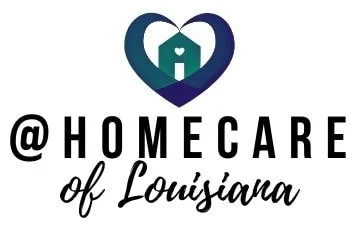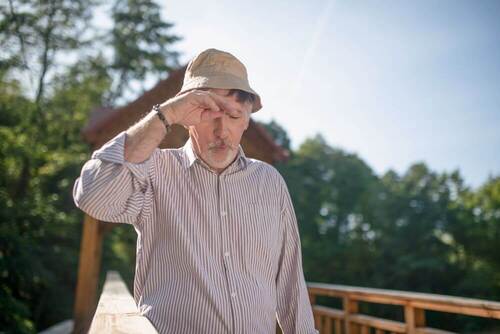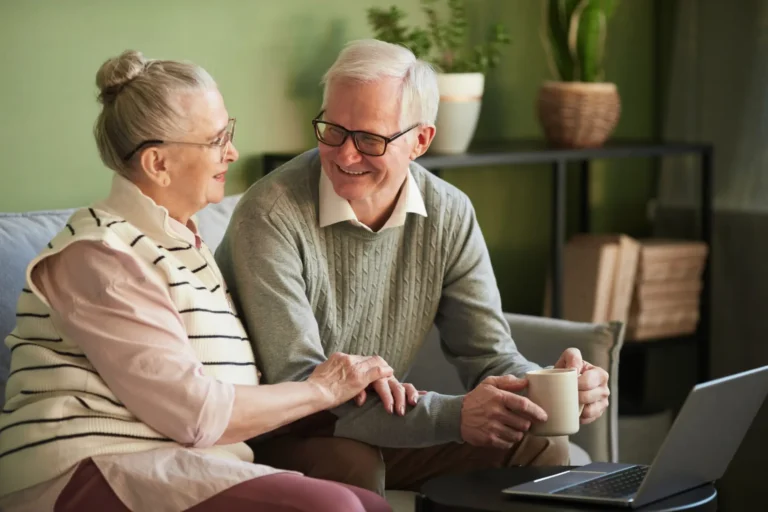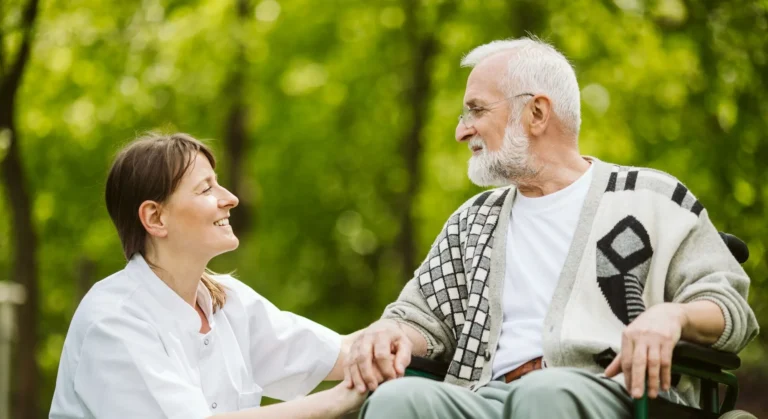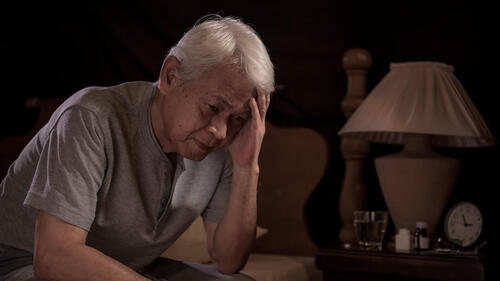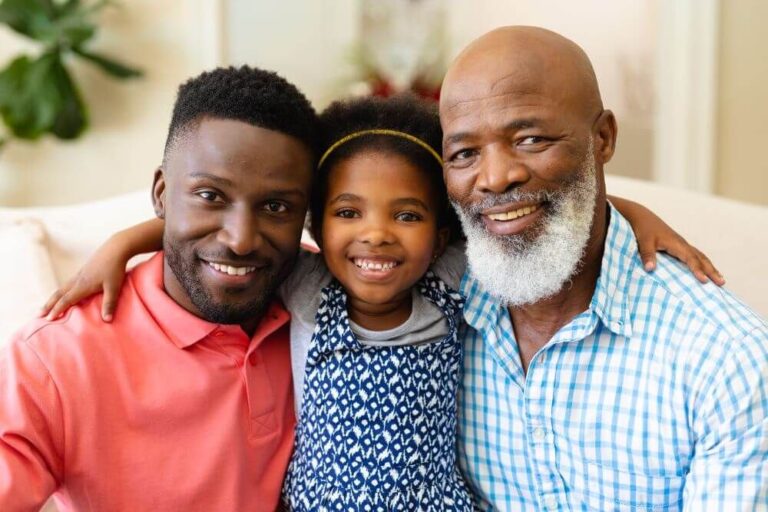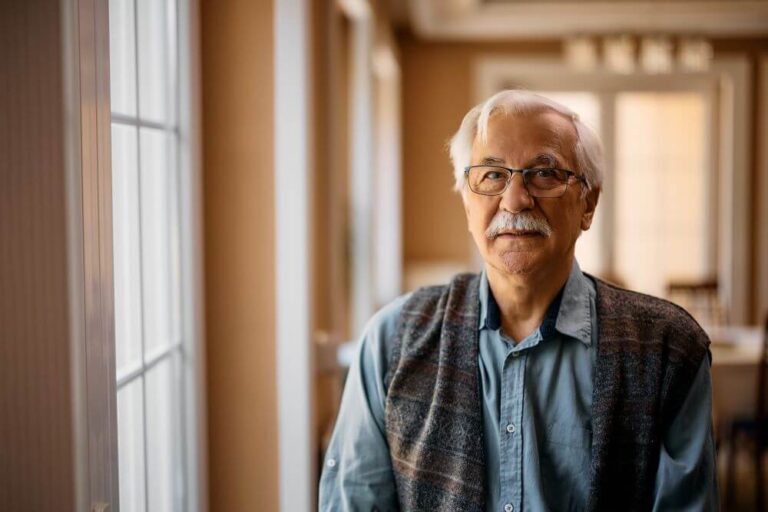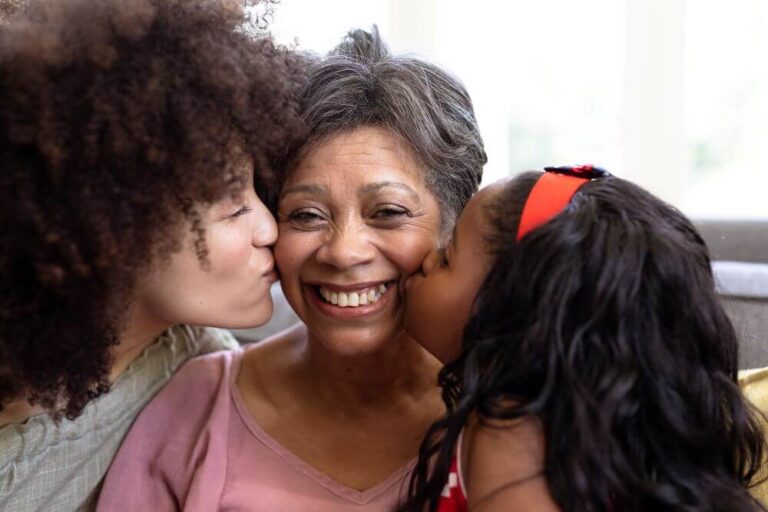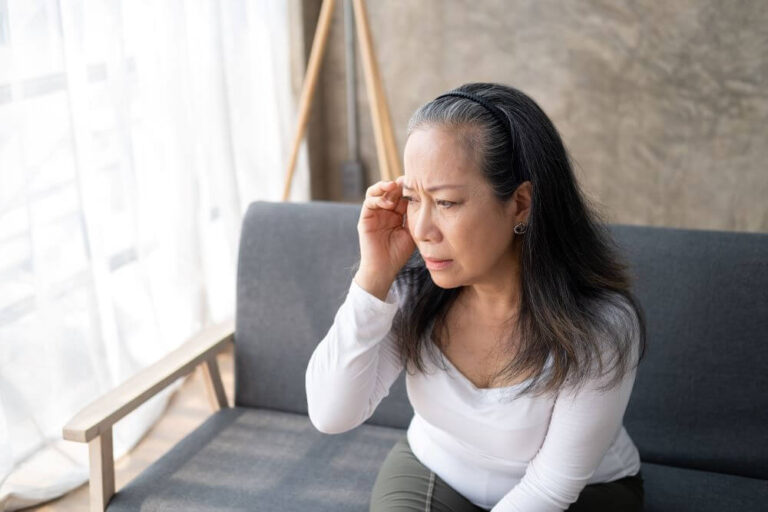Are you an older adult who loves spending the summer basking in the glorious Louisiana sun? Your golden years should be a time of relaxation and enjoyment. Whether sipping a cold beverage poolside or walking along a gulf shore beach, summer offers older adults endless opportunities to experience Louisiana’s great outdoors. However, to enjoy the enthralls of summer, we must prioritize safety from heat exhaustion, an often overlooked and severe threat to our senior community.
As a local Louisiana company, our primary concern is the safety of our residents in the Bayou State. During peak summer months, temperatures in cities such as Baton Rouge and New Orleans average in the upper 90s, even toppling the sweltering 100’s. The article below offers a glimpse into the frightening reality of heat exhaustion among older adults. We hope this well-researched information helps you embrace the Louisiana sunshine with open arms while protecting yourself or an elderly loved one. With a bit of care and attention, we can ensure everyone relishes the summer months safely and comfortably.
Why Older Adults Are At More Risk Of Heat Exhaustion?
According to the United States Environmental Protection Agency (EPA), heat-related deaths have been on the rise over the past fifty years, and adults 65 and older are most at risk. This begs the question, why are seniors more prone to heat exhaustion than other age demographics?
According to the National Institute on Aging, older adults are more likely to have chronic medical conditions that affect the body’s response to temperature and to take prescription medicines that alter the body’s ability to control temperature or sweat.
Another possible explanation of why seniors are more prone to heat exhaustion comes from NPR:
Physically, explains Julia Jernberg, a doctor and researcher at the University of Arizona in Tucson, older people sweat less effectively. And their instincts to drink water also drop, which can lead to dehydration-and then less sweating. On top of that, “a lot of times our older patients, or those of us who are older, don’t have the cardiac pumping mechanism necessary” to move blood as efficiently from their core to blood vessels near the skin, where it could be cooled by sweating.
Regardless of the reason, seniors aged 65+ are at higher risk of heat exhaustion than other demographics. In states such as Louisiana, where extreme heat is compounded by sweltering humidity, heat exhaustion is a real and dangerous threat for older adults.
What’s The Difference Between Heat Stroke vs. Heat Exhaustion?
Heat stroke and heat exhaustion are serious illnesses with distinct symptoms and treatments. Understanding their differences is crucial to ensuring prompt and appropriate medical care.
Heat exhaustion is a milder form of heat-related illness, characterized by symptoms like headache, dizziness, nausea, and a rapid heart rate. While unpleasant, heat exhaustion is generally not life-threatening if addressed promptly. The key is to move the affected individual to a cool, shaded area, provide fluids, and allow them to rest. If you avoid heat stroke, recovering from heat exhaustion usually takes 24 to 48 hours, according to Mount Sinai.
In contrast, heat stroke is a medical emergency. It occurs when the body’s temperature regulation system fails, leading to a dangerously high body temperature, often above 104°F (40°C). Symptoms can include confusion, agitation, and even loss of consciousness. Without immediate treatment, heat stroke can quickly become fatal. Heat stroke recovery times vary depending on the individual; initial recovery may be done within 1-2 days in the hospital; complete recovery may take about two months to a year, according to EMedicine Health.
Here is a helpful article published by The US Centers for Disease Control and Prevention on various heat-related illnesses, including but not limited to heat exhaustion and heat stroke.
How Seniors Can Avoid Heat Exhaustion?
Now that we’ve established the danger of heat exhaustion, especially in southern states such as Louisiana, it’s vital to know how to avoid this heat-related illness, especially if you are a senior. By understanding the warning signs and implementing simple preventative measures, seniors can stay safe and healthy all season long.
One of the most effective ways for seniors to beat the heat is to stay hydrated. Drinking water throughout the day is essential, as dehydration significantly contributes to heat exhaustion. Seniors should avoid caffeinated and alcoholic beverages, which can worsen dehydration.
In addition to staying hydrated, seniors should limit their time outdoors during the hottest hours of the day. Seeking shade, turning on air conditioning, and wearing lightweight, light-colored clothing can all help regulate body temperature.
It’s also crucial for seniors to listen to their bodies and not push themselves too hard in the heat. Warning signs like headache, dizziness, nausea, and muscle cramps should not be ignored. Prompt action to cool down and rehydrate can make all the difference.
Conclusion
By understanding the risks and taking preventative measures, such as ensuring adequate hydration, limiting time outdoors, and creating a cool, comfortable living environment, elderly individuals can stay protected against heat exhaustion. We hope this article has provided insights on ways to enjoy summer safely, whether you are a senior or someone who cares for one.
If you or an elderly loved one requires extra assistance staying independent and safe, please contact At Home Care of Louisiana for a free home care assessment. Our team of trained caregivers provides companion, personal, and 24-hour care in the comfort of your home.
